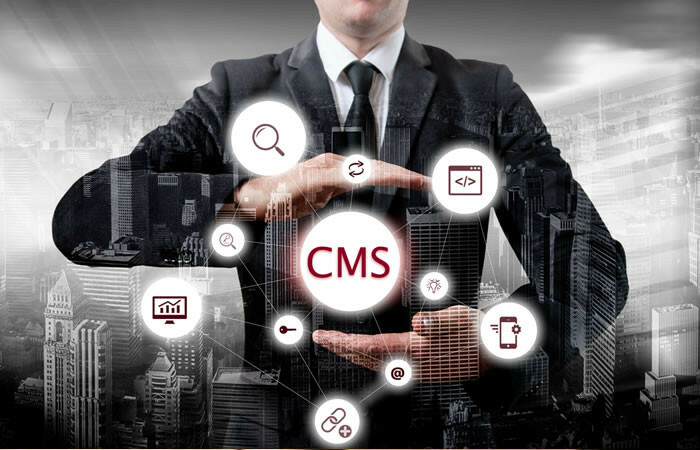Maximizing Efficiency and Profits with the Best Headless CMS Tools for Real Estate Industry
They trust us:





Best Headless CMS Tools For the Real Estate Industry

(source:https://images.app.goo.gl/7R6ybvBN59vdiEiR6)
In the real estate industry, having a fast and flexible content management system (CMS) is crucial for managing properties, creating engaging content, and optimizing the user experience. One of the best headless CMS tools for the industry is Contentful. This software offers a range of solutions, including content modeling, content editing, and content delivery via APIs. With its powerful tools and user-friendly interface, Contentful is an excellent choice for businesses looking to create and manage content quickly and efficiently.
Another popular headless CMS tool is Prismic, which offers a range of features, including content modeling, content editing, and content delivery via APIs. With its comprehensive tools and robust reporting, Prismic is a great choice for businesses of all sizes. Finally, ButterCMS is a comprehensive headless CMS tool that offers a range of solutions, including content modeling, content editing, and content delivery via APIs. Its powerful tools make it an ideal choice for larger businesses with complex content management needs.
Overall, these headless CMS tools are essential for managing properties, creating engaging content, and optimizing the user experience, making them a must-have for real estate professionals looking to improve their online presence and business performance.
What is Agility CMS?
Agility CMS is a cloud-based content management system designed to help businesses create, manage, and deliver their digital content. The software offers a range of features, including a user-friendly interface, flexible content modeling, and multi-channel delivery.
One of the key benefits of Agility CMS is its user-friendly interface. The software offers a drag-and-drop editor and customizable templates, enabling businesses to create and manage their content with ease. The software also offers real-time previews, enabling businesses to see how their content will appear on different devices and platforms.
Agility CMS also offers flexible content modeling capabilities. The software enables businesses to define their content types and create custom fields, enabling them to tailor their content to their specific needs. The software also offers version control, enabling businesses to track changes made to their content and revert to previous versions if necessary.
Another unique feature of Agility CMS is its multi-channel delivery capabilities. The software enables businesses to deliver their content to multiple channels, such as websites, mobile apps, and social media platforms, from a single platform. This can help businesses streamline their content delivery processes and ensure a consistent user experience across all channels.
In addition, Agility CMS offers integration with popular third-party tools and services, such as Google Analytics and Salesforce, enabling businesses to seamlessly incorporate these tools into their content management workflows.
Overall, Agility CMS is a powerful and user-friendly solution that can help businesses of all sizes create, manage, and deliver their digital content and achieve greater success in their digital marketing efforts.
What are the features of Agility CMS?
Agility CMS is a cloud-based content management system that offers a variety of features, including:
Headless CMS: Agility CMS provides a headless CMS architecture that enables developers to build flexible and scalable applications. It separates the content from the presentation layer, making it easier to manage content across multiple channels.
Multi-site management: With Agility CMS, you can manage multiple websites, blogs, and mobile apps from a single platform. It allows you to share content and templates across multiple sites.
Customizable templates: Agility CMS provides customizable templates for creating web pages, landing pages, blogs, and other content types. It comes with a drag-and-drop interface that makes it easy to create and manage content.
Content localization: Agility CMS supports content localization, making it easy to create and manage content in multiple languages. It also provides translation workflows and integrations with translation services.
E-commerce integration: Agility CMS provides integrations with leading e-commerce platforms, such as Shopify, BigCommerce, and Magento. It enables you to manage product catalogs, orders, and payments from a single platform.
Content personalization: Agility CMS provides content personalization features that enable you to deliver personalized content based on user behavior, location, and other factors. It also provides integrations with third-party personalization tools.
SEO optimization: Agility CMS provides SEO optimization features that enable you to optimize your content for search engines. It includes features like meta tags, sitemaps, and canonical URLs.
Analytics and reporting: Agility CMS provides analytics and reporting features that enable you to track user behavior, content performance, and other metrics. It comes with integrations with leading analytics tools, such as Google Analytics.
Developer tools: Agility CMS provides developer tools, such as APIs, SDKs, and webhooks, that enable developers to build custom applications and integrations. It also provides integrations with leading development tools, such as GitHub and Visual Studio.
Security and compliance: Agility CMS provides security and compliance features, such as SSL encryption, backup and recovery, and compliance with data privacy regulations like GDPR and CCPA. It also provides SOC 2 Type 2 compliance.
What is the pricing of Agility CMS?
Agility CMS offers multiple pricing plans based on the needs of businesses, including:
Small Business: $99/month – For businesses with basic content management needs
Professional: $999/month – For businesses with larger content management needs
Enterprise: Custom pricing – For businesses with advanced content management needs, such as multiple websites or a global presence.
Each plan offers different features and capabilities, such as the number of users, number of websites, and the amount of storage space. Additional costs may apply for add-ons and integrations. Customers can contact Agility CMS for more information on pricing and customization options.
What is Cloud CMS?
Cloud CMS is a cloud-based content management system designed for developers to create and manage digital content. The software offers a range of features, including headless architecture, flexible APIs, and content modeling.
One of the key benefits of Cloud CMS is its headless architecture. The software separates the content from the presentation layer, enabling developers to create and manage content independently of the website or application. This allows for greater flexibility and agility in the development process.
Cloud CMS also offers flexible APIs, enabling developers to access and manage content from a wide range of devices and applications. The software supports RESTful APIs, enabling developers to integrate with popular programming languages and frameworks.
Another unique feature of Cloud CMS is its content modeling capabilities. The software enables developers to create custom content models, defining the structure of their content, and use them to create content items. This can help businesses maintain consistency and quality across their digital content.
In addition, Cloud CMS offers integration with popular third-party tools and services, such as Salesforce and AWS, enabling businesses to seamlessly incorporate these tools into their content management workflows.
Overall, Cloud CMS is a powerful and flexible solution that can help developers create and manage digital content with ease and achieve greater success in their digital projects.
What are the features of Cloud CMS?
Cloud CMS is a headless content management system designed to enable development teams to build custom content management solutions that are scalable, secure, and easy to use. Some of its key features include:
Headless CMS: Cloud CMS is a headless CMS that provides an API-first approach, which enables developers to create content once and deliver it across any device or channel.
Multi-tenant architecture: The platform has a multi-tenant architecture, which means that multiple organizations can use the same instance of Cloud CMS while keeping their data completely separate.
Scalability: Cloud CMS is designed to scale with your business needs, allowing you to store and manage millions of content items.
Customizable workflows: The platform offers a wide range of customizable workflows that help you manage your content creation and publishing processes more efficiently.
Version control: Cloud CMS offers built-in version control, allowing you to track changes to your content and roll back to previous versions if necessary.
Collaboration: The platform offers robust collaboration features, including commenting and task assignment, that help teams work together more effectively.
Content modeling: Cloud CMS provides a flexible content modeling system that allows you to define custom content types and fields.
Integration: The platform offers pre-built integrations with a wide range of tools and services, including AWS, Salesforce, and Slack.
Security: Cloud CMS provides enterprise-level security features, including SSL encryption, access controls, and audit logging.
Developer-friendly: The platform is designed to be developer-friendly, with extensive documentation, SDKs, and APIs that allow you to build custom applications and integrations.
What is the pricing of Cloud CMS?
Cloud CMS has several pricing plans, including a free plan and paid plans that are designed for various business needs. Here’s an overview of the pricing plans:
Community Edition – This is a free plan that allows for up to 2 users, 2 content repositories, and 1GB of storage.
Startup Edition – This plan costs $250 per month and includes up to 5 users, 5 content repositories, and 10GB of storage.
Growth Edition – This plan costs $750 per month and includes up to 15 users, 15 content repositories, and 50GB of storage.
Business Edition – This plan is custom-priced and includes unlimited users, unlimited content repositories, and customizable storage and support options.
Please note that these prices are subject to change and should be verified on the Cloud CMS website.
What is Concrete CMS?
Concrete CMS is a free and open-source content management system designed for developers and businesses to create and manage websites. The software offers a range of features, including a user-friendly interface, customizable templates, and support for multiple languages.
One of the key benefits of Concrete CMS is its user-friendly interface. The software offers a simple and intuitive interface, enabling users to create and manage their content with ease. The software also offers real-time previews, enabling users to see how their content will appear on their website.
Concrete CMS also offers customizable templates, enabling users to tailor the look and feel of their website to their specific needs. The software offers a range of pre-built templates, as well as the ability to create custom templates using HTML, CSS, and JavaScript.
Another unique feature of Concrete CMS is its support for multiple languages. The software can support multiple languages on a single website, enabling businesses to reach a global audience and improve their SEO efforts.
In addition, Concrete CMS offers integration with popular third-party tools and services, such as Google Analytics and Mailchimp, enabling businesses to seamlessly incorporate these tools into their website management workflows.
Overall, Concrete CMS is a powerful and user-friendly solution that can help businesses and developers create and manage their websites with ease and achieve greater success in their online presence.
What are the features of Concrete CMS?
Concrete CMS is an open-source content management system that offers the following features:
Intuitive Content Editing: Concrete CMS offers a user-friendly interface for content editors, allowing them to easily add and edit content on the website.
Customizable Design: The platform allows users to customize the design of their website using customizable templates or by creating their own designs.
Multi-Site Management: The platform allows users to manage multiple websites from a single installation, making it easier to manage different brands or departments.
Advanced Permissions: The platform offers advanced permissions, allowing administrators to control who can access and edit different areas of the website.
SEO Optimization: Concrete CMS offers built-in SEO optimization tools to help improve the search engine rankings of your website.
E-commerce Integration: The platform integrates with popular e-commerce platforms like Shopify and WooCommerce, making it easier to create and manage online stores.
Mobile Responsiveness: Concrete CMS ensures that websites built on its platform are mobile-responsive, ensuring a seamless user experience on all devices.
Workflow Management: The platform offers workflow management tools, making it easier to manage content creation and publishing processes.
Multilingual Support: The platform offers multilingual support, making it easier to create and manage websites in multiple languages.
Developer-Friendly: Concrete CMS offers a developer-friendly environment with access to its core code, making it easier to customize and extend the platform.
What is the pricing of Concrete CMS?
Concrete CMS offers three pricing plans – Free, Professional, and Enterprise. The Free plan includes basic features and is suitable for small websites. The Professional plan starts at $20 per month and includes more advanced features, such as multiple site management and user permissions.
The Enterprise plan is designed for larger websites and organizations, and pricing varies depending on the specific needs and requirements of the business. Customers can contact Concrete CMS directly for a quote.
What is Butter CMS?
Butter CMS is a headless content management system designed for developers to create and manage digital content. The software offers a range of features, including a user-friendly interface, flexible APIs, and support for multiple programming languages.
One of the key benefits of Butter CMS is its user-friendly interface. The software offers a simple and intuitive interface, enabling users to create and manage their content with ease. The software also offers real-time previews, enabling users to see how their content will appear on their website or application.
Butter CMS also offers flexible APIs, enabling developers to access and manage content from a wide range of devices and applications. The software supports RESTful APIs, enabling developers to integrate with popular programming languages and frameworks.
Another unique feature of Butter CMS is its support for multiple programming languages. The software can support multiple programming languages on a single website or application, enabling developers to choose the best language for their needs.
In addition, Butter CMS offers integration with popular third-party tools and services, such as Shopify and HubSpot, enabling businesses to seamlessly incorporate these tools into their content management workflows.
Overall, Butter CMS is a powerful and flexible solution that can help developers create and manage digital content with ease and achieve greater success in their digital projects.
What are the features of Butter CMS?
Butter CMS is a headless content management system that allows developers to build websites and applications using modern frameworks like React, Angular, and Vue.js. Some of the features of Butter CMS are:
Content modeling: Allows you to create custom content types and fields.
API-first approach: Butter CMS provides a RESTful API that developers can use to access content and deliver it to their websites or applications.
Content editing: The Butter CMS dashboard provides an easy-to-use content editor that allows non-technical users to manage content.
Asset management: Butter CMS allows you to manage images, videos, and other digital assets.
Multi-language support: Butter CMS supports multiple languages, which is useful for websites and applications that target a global audience.
SEO optimization: Butter CMS includes built-in SEO features like meta tags, sitemaps, and Open Graph tags.
Collaboration: Butter CMS allows multiple users to collaborate on content creation and management.
Integrations: Butter CMS integrates with popular tools and services like Google Analytics, HubSpot, and Salesforce.
What is the pricing of Butter CMS?
ButterCMS has four pricing plans, which are as follows:
Free: The free plan includes 2,500 API requests and 3 content types.
Starter: The starter plan is priced at $99 per month, and it includes 50,000 API requests, unlimited content types, and one user account.
Professional: The professional plan is priced at $499 per month, and it includes 250,000 API requests, unlimited content types, and five user accounts.
Enterprise: The enterprise plan is custom-priced and includes custom API limits, unlimited content types, and multiple user accounts. This plan also includes a dedicated account manager and priority support.
All plans include SSL encryption, CDN, content delivery, and basic support.
What is Ingeniux CMS?
Ingeniux CMS is a web content management system designed to help businesses create and manage their digital content. The software offers a range of features, including a user-friendly interface, flexible content modeling, and multi-channel delivery.
One of the key benefits of Ingeniux CMS is its user-friendly interface. The software offers a drag-and-drop editor and customizable templates, enabling businesses to create and manage their content with ease. The software also offers real-time previews, enabling businesses to see how their content will appear on different devices and platforms.
Ingeniux CMS also offers flexible content modeling capabilities. The software enables businesses to define their content types and create custom fields, enabling them to tailor their content to their specific needs. The software also offers version control, enabling businesses to track changes made to their content and revert to previous versions if necessary.
Another unique feature of Ingeniux CMS is its multi-channel delivery capabilities. The software enables businesses to deliver their content to multiple channels, such as websites, mobile apps, and social media platforms, from a single platform. This can help businesses streamline their content delivery processes and ensure a consistent user experience across all channels.
In addition, Ingeniux CMS offers integration with popular third-party tools and services, such as Salesforce and Google Analytics, enabling businesses to seamlessly incorporate these tools into their content management workflows.
Overall, Ingeniux CMS is a powerful and user-friendly solution that can help businesses of all sizes create, manage, and deliver their digital content and achieve greater success in their digital marketing efforts.
What are the features of Ingeniux CMS?
Ingeniux CMS is a web content management system that offers the following features:
Content Creation and Management: Ingeniux CMS allows users to create and manage web content, including pages, articles, images, videos, and documents. The system provides a user-friendly interface for creating, editing, and publishing content.
Personalization: Ingeniux CMS offers personalized content delivery, allowing users to target content to specific audiences or segments. This includes dynamic content based on user behavior and preferences.
Multi-Site Management: Ingeniux CMS allows users to manage multiple websites from a single platform, streamlining site management and reducing costs.
Workflow and Collaboration: Ingeniux CMS provides a workflow and collaboration system that allows content teams to work together seamlessly. The system offers tools for content approval, version control, and publishing workflows.
Mobile Responsiveness: Ingeniux CMS is designed to be mobile responsive, ensuring that websites are optimized for mobile devices and providing an optimal user experience across devices.
Search Engine Optimization: Ingeniux CMS includes SEO tools to help users optimize their websites for search engines. The system provides tools for optimizing content, metadata, and URLs.
Integration: Ingeniux CMS integrates with a wide range of third-party systems and applications, including CRM, marketing automation, and e-commerce platforms.
Security: Ingeniux CMS provides robust security features, including user authentication, access controls, and data encryption, to ensure that websites are secure and compliant with data protection regulations.
What is the pricing of Ingeniux CMS?
Ingeniux CMS offers flexible pricing options depending on the needs of each customer. They do not provide a fixed pricing structure on their website. Instead, interested customers can request a quote by filling out a form on their website or by contacting their sales team directly.
What is Storyblok?
Storyblok is a headless content management system designed to help developers create and manage digital content. The software offers a range of features, including a user-friendly interface, flexible APIs, and real-time collaboration.
One of the key benefits of Storyblok is its user-friendly interface. The software offers a simple and intuitive interface, enabling users to create and manage their content with ease. The software also offers real-time previews, enabling users to see how their content will appear on their website or application.
Storyblok also offers flexible APIs, enabling developers to access and manage content from a wide range of devices and applications. The software supports RESTful APIs, enabling developers to integrate with popular programming languages and frameworks.
Another unique feature of Storyblok is its real-time collaboration capabilities. The software enables teams to collaborate on content creation and editing, enabling them to work more efficiently and effectively.
In addition, Storyblok offers integration with popular third-party tools and services, such as Shopify and Salesforce, enabling businesses to seamlessly incorporate these tools into their content management workflows.
Overall, Storyblok is a powerful and flexible solution that can help developers create and manage digital content with ease and achieve greater success in their digital projects.
What are the features of Storyblok?
Storyblok is a headless content management system (CMS) that allows users to manage content in a visual way. Its main features include:
Visual editing: Storyblok provides an intuitive visual editor that allows users to manage content with a drag-and-drop interface.
Headless architecture: Storyblok is a headless CMS, which means it separates content creation from content presentation. This allows users to create and manage content independently of the presentation layer.
Multi-language support: Storyblok provides a multilingual content management system, allowing users to manage content in multiple languages.
Content modeling: Storyblok allows users to create custom content models with flexible field types to support complex content structures.
Asset management: Storyblok provides a media library to manage images, videos, and other digital assets.
Third-party integrations: Storyblok integrates with a variety of third-party tools and services, including e-commerce platforms, analytics tools, and marketing automation software.
Developer tools: Storyblok provides a suite of developer tools, including APIs and SDKs, to enable custom integrations and development.
What is the pricing of Storyblok?
Storyblok offers several pricing plans based on the number of users, the amount of content and the level of support. Here are the current pricing plans as of my knowledge cutoff date (September 2021):
Free: 0€ per month, 1 user, 100k API requests, 2 spaces
Basic: €27 per month, 3 users, 500k API requests, 3 spaces
Advanced: €249 per month, 15 users, 5 million API requests, 10 spaces
Premium: Custom pricing, unlimited users, API requests and spaces, dedicated support and SLA
Note that these prices may be subject to change over time, so it’s always a good idea to check the Storyblok website for the latest pricing information.
What is Contentstack?
Contentstack is a headless content management system designed for developers and businesses to create and manage digital content. The software offers a range of features, including a user-friendly interface, flexible APIs, and real-time collaboration.
One of the key benefits of Contentstack is its user-friendly interface. The software offers a simple and intuitive interface, enabling users to create and manage their content with ease. The software also offers real-time previews, enabling users to see how their content will appear on their website or application.
Contentstack also offers flexible APIs, enabling developers to access and manage content from a wide range of devices and applications. The software supports RESTful APIs, enabling developers to integrate with popular programming languages and frameworks.
Another unique feature of Contentstack is its real-time collaboration capabilities. The software enables teams to collaborate on content creation and editing, enabling them to work more efficiently and effectively.
In addition, Contentstack offers integration with popular third-party tools and services, such as Salesforce and Marketo, enabling businesses to seamlessly incorporate these tools into their content management workflows.
Overall, Contentstack is a powerful and flexible solution that can help developers and businesses create and manage digital content with ease and achieve greater success in their digital projects.
What are the features of Contentstack?
Contentstack is a headless content management system that provides the following features:
Headless architecture: Contentstack offers a headless architecture that enables developers to create and deliver content across any channel or device.
API-first approach: With an API-first approach, Contentstack offers APIs that enable developers to access and manage content easily.
Customizable content modeling: The CMS provides a flexible and customizable content modeling that enables users to create content models to fit their needs.
Multi-site management: Contentstack enables users to manage multiple sites from a single dashboard.
Multi-language support: The CMS provides support for multiple languages, enabling users to create and deliver content in different languages.
Workflow management: Contentstack offers a workflow management system that enables users to create custom workflows for content creation, review, and approval.
Digital asset management: With built-in digital asset management, users can manage and organize their media files and access them easily.
Personalization and targeting: Contentstack enables users to deliver personalized content and target specific audiences based on their interests, behaviors, and preferences.
Analytics and reporting: With integrated analytics and reporting tools, users can track and analyze content performance and user behavior.
Integrations and extensions: Contentstack integrates with a wide range of third-party tools and services, including marketing automation, CRM, e-commerce, and social media platforms.
What is the pricing of Contentstack?
Contentstack pricing is based on a subscription model, and there are different plans available based on the features and requirements of the users. The plans are as follows:
Essential: The Essential plan is ideal for small teams and includes the basic features of Contentstack. The pricing for this plan starts at $995/month.
Business: The Business plan is ideal for mid-size businesses and includes advanced features such as workflows and publishing automation. The pricing for this plan starts at $3,495/month.
Enterprise: The Enterprise plan is ideal for large organizations and includes features such as custom roles and permissions, single sign-on, and dedicated support. The pricing for this plan starts at $9,995/month.
Custom: For organizations with specific requirements, Contentstack offers a custom plan that includes tailor-made features and solutions.
Note that the pricing mentioned above is for the cloud-based SaaS version of Contentstack. For on-premise deployment, Contentstack offers an enterprise version of their CMS. The pricing for this version depends on the specific requirements of the user.
What is Webiny?
Webiny is a serverless content management system designed for developers and businesses to create and manage digital content. The software offers a range of features, including a user-friendly interface, flexible APIs, and real-time collaboration.
One of the key benefits of Webiny is its user-friendly interface. The software offers a simple and intuitive interface, enabling users to create and manage their content with ease. The software also offers real-time previews, enabling users to see how their content will appear on their website or application.
Webiny also offers flexible APIs, enabling developers to access and manage content from a wide range of devices and applications. The software supports RESTful APIs, enabling developers to integrate with popular programming languages and frameworks.
Another unique feature of Webiny is its real-time collaboration capabilities. The software enables teams to collaborate on content creation and editing, enabling them to work more efficiently and effectively.
In addition, Webiny offers integration with popular third-party tools and services, such as AWS Lambda and Elasticsearch, enabling businesses to seamlessly incorporate these tools into their content management workflows.
Overall, Webiny is a powerful and flexible solution that can help developers and businesses create and manage digital content with ease and achieve greater success in their digital projects.
What are the features of Webiny?
Webiny is a serverless open-source platform that enables developers to build and deploy modern web applications quickly. Some of the features of Webiny include:
Serverless architecture: Webiny is built using serverless architecture, which means that developers don’t have to worry about managing servers, scaling, and other infrastructure-related issues.
Headless CMS: Webiny comes with a built-in headless CMS, which makes it easy for developers to create, manage and publish content across different channels.
GraphQL API: Webiny uses GraphQL as its primary API layer, making it easy for developers to query and manipulate data.
React-based frontend: Webiny uses React as its frontend library, making it easy for developers to build modern and responsive user interfaces.
Serverless functions: Webiny allows developers to build and deploy serverless functions that can be triggered by different events or used to perform specific tasks.
Extensibility: Webiny is designed to be extensible, which means that developers can create custom plugins and extensions to add new features and functionality to the platform.
DevOps integrations: Webiny supports a range of DevOps tools and integrations, making it easy for developers to automate their deployment processes and manage their applications more efficiently.
What is the pricing of Webiny?
Webiny offers a free plan that includes basic features and functionalities. For more advanced features and support, Webiny offers three paid plans:
Professional – starting at $499 per month or $4,788 per year
Business – starting at $999 per month or $9,588 per year
Enterprise – custom pricing based on individual business needs
These prices may vary based on the level of support and features required by the user.
What is WordPress VIP?
WordPress VIP is a cloud-based platform designed for enterprise-level businesses to create and manage their WordPress-powered websites. The software offers a range of features, including a user-friendly interface, flexible APIs, and enterprise-grade security.
One of the key benefits of WordPress VIP is its user-friendly interface. The software offers a simple and intuitive interface, enabling users to create and manage their content with ease. The software also offers real-time previews, enabling users to see how their content will appear on their website.
WordPress VIP also offers flexible APIs, enabling developers to access and manage content from a wide range of devices and applications. The software supports RESTful APIs, enabling developers to integrate with popular programming languages and frameworks.
Another unique feature of WordPress VIP is its enterprise-grade security capabilities. The software offers a range of security features, including DDoS protection, intrusion detection, and malware scanning, enabling businesses to protect their websites from cyber threats.
In addition, WordPress VIP offers integration with popular third-party tools and services, such as Salesforce and Google Analytics, enabling businesses to seamlessly incorporate these tools into their website management workflows.
Overall, WordPress VIP is a powerful and reliable solution that can help enterprise-level businesses create and manage their WordPress websites with ease and achieve greater success in their digital marketing efforts.
What are the features of WordPress VIP?
WordPress VIP is a fully managed platform that offers a range of features to help businesses create, manage, and publish content on their WordPress websites. Some of the key features of WordPress VIP include:
Scalability: WordPress VIP is designed to handle high traffic and large volumes of content, making it ideal for enterprise-level websites.
Security: The platform comes with built-in security features to protect against threats such as malware, hacking, and data breaches.
Customization: WordPress VIP offers a range of customization options to help businesses create a website that fits their unique needs and brand.
Performance: The platform is optimized for speed and performance, helping websites load quickly and efficiently.
Support: WordPress VIP provides 24/7 support to help businesses resolve any issues or challenges that arise with their website.
Analytics: The platform offers built-in analytics tools to help businesses track and analyze the performance of their website and content.
Integration: WordPress VIP integrates with a range of third-party tools and services, including marketing automation platforms, CRM systems, and more.
Content management: WordPress VIP offers a user-friendly content management system (CMS) that makes it easy for businesses to create, edit, and publish content on their website.
Compliance: The platform is compliant with a range of industry standards and regulations, including GDPR, CCPA, and HIPAA.
Overall, WordPress VIP is a robust platform that provides businesses with the tools and features they need to create a high-performing, secure, and customizable website.
What is the pricing of WordPress VIP?
WordPress VIP offers custom pricing based on the specific needs and requirements of each client. Interested clients can contact their sales team for a quote.
What is DatoCMS?
DatoCMS is a content management system designed for developers and businesses to create and manage digital content. The software offers a range of features, including a user-friendly interface, flexible APIs, and multi-language support.
One of the key benefits of DatoCMS is its user-friendly interface. The software offers a simple and intuitive interface, enabling users to create and manage their content with ease. The software also offers real-time previews, enabling users to see how their content will appear on their website or application.
DatoCMS also offers flexible APIs, enabling developers to access and manage content from a wide range of devices and applications. The software supports RESTful APIs, enabling developers to integrate with popular programming languages and frameworks.
Another unique feature of DatoCMS is its multi-language support capabilities. The software enables businesses to create and manage content in multiple languages, enabling them to reach a global audience and ensure a consistent user experience across all languages.
In addition, DatoCMS offers integration with popular third-party tools and services, such as Shopify and Slack, enabling businesses to seamlessly incorporate these tools into their content management workflows.
Overall, DatoCMS is a powerful and flexible solution that can help developers and businesses create and manage digital content with ease and achieve greater success in their digital projects.
What are the features of DatoCMS?
DatoCMS is a content management system that provides a number of features, including:
Headless CMS: DatoCMS is a headless CMS, which means that it provides content management features without any specific frontend. This allows developers to use any frontend technology they prefer, such as React or Angular.
Multi-language support: DatoCMS supports multiple languages, allowing content to be managed in different languages for international websites.
Customizable content models: Users can customize content models to fit their needs, defining the structure of content and fields that are needed.
Collaborative editing: DatoCMS allows multiple users to edit content collaboratively, with role-based permissions for different types of users.
Media library: DatoCMS includes a media library where users can manage images, videos, and other assets.
SEO optimization: DatoCMS includes tools to optimize content for SEO, including meta descriptions and meta tags.
Content scheduling: DatoCMS allows content to be scheduled for publication at a specific time.
API-first approach: DatoCMS provides a powerful API, making it easy to integrate with other systems and applications.
Analytics: DatoCMS includes analytics tools to track how users are interacting with content, helping to optimize content for better engagement.
Customization: DatoCMS is highly customizable, with a range of integrations and plugins available to extend its functionality.
What is the pricing of DatoCMS?
DatoCMS offers several pricing plans depending on the needs of the user. The plans are as follows:
Micro Plan: This plan is free and offers limited features such as 2,000 API requests per month, 1,000 records, and 2 team members.
Starter Plan: This plan costs $99 per month and includes 10,000 API requests per month, 5,000 records, and 5 team members.
Professional Plan: This plan costs $499 per month and includes 100,000 API requests per month, 50,000 records, and 15 team members.
Business Plan: This plan costs $999 per month and includes 500,000 API requests per month, 250,000 records, and 50 team members.
Enterprise Plan: This plan is custom-priced and is designed for larger businesses with high-volume content needs. It includes features such as dedicated infrastructure, custom integrations, and more.
Note that all plans come with a 30-day free trial.
What are Headless CMS tools?
Headless CMS tools are software applications used to manage and deliver content to digital channels, such as websites, mobile applications, and Internet of Things (IoT) devices. These tools are designed to provide content management functionality without the constraints of a traditional, coupled architecture.
Headless CMS tools typically include features such as content creation and editing, content storage and management, and content delivery APIs. They allow businesses and organizations to manage and deliver content to multiple digital channels, without the need for specific presentation templates or front-end technologies.
By using headless CMS tools, businesses and organizations can manage their content more efficiently and deliver it to multiple channels more easily. They can also create customized, responsive, and engaging digital experiences for their audiences across various devices and platforms.
Some popular headless CMS tools include Contentful, Prismic, and Strapi. These tools can be used by businesses of all sizes and industries to manage and deliver content to multiple digital channels, and create engaging digital experiences for their audiences. Overall, headless CMS tools are an important investment for any organization looking to manage their content more efficiently and deliver it to multiple digital channels with ease.
Why should Real Estate companies use Headless CMS tools?

(source:https://images.app.goo.gl/SXRDrohXqZTeCHPW6)
Real estate companies can benefit from using headless CMS (Content Management System) tools to manage and deliver their content in a more flexible and efficient way. Headless CMS tools allow real estate companies to separate their content from the presentation layer, allowing them to reuse and deliver content across multiple channels and devices, such as websites, mobile apps, and IoT devices.
These tools can also help real estate companies to streamline their content creation and delivery processes, by providing a centralized platform for content creation, storage, and management. Additionally, headless CMS tools can help real estate companies to improve their content personalization and optimization, by providing real-time data and analytics on user behavior and engagement. By using headless CMS tools, real estate companies can improve their content delivery and optimization, reduce administrative burdens, and ultimately, increase their productivity and profitability.
What features should Headless CMS tools include for Real Estate agents?
Headless CMS (Content Management System) tools are essential for real estate agents who want to manage and publish their website content efficiently and effectively. When it comes to choosing the right Headless CMS tools, there are several key features that should be considered.
Firstly, the software should have an easy-to-use interface that allows real estate agents to manage and publish content across multiple channels, including websites, mobile apps, and social media platforms.
Secondly, the software should have the ability to create and manage content in a flexible and customizable way, including the ability to create custom content types, fields, and taxonomies.
Thirdly, the software should have the ability to integrate with other tools and platforms used by real estate agents, such as CRM systems and marketing automation tools.
Fourthly, Headless CMS tools for real estate agents should include features that allow for personalized content delivery, allowing agents to deliver customized content to specific audiences based on their interests and behavior.
Lastly, the software should have the ability to generate reports and analytics on content performance, including the ability to track engagement metrics and identify areas for improvement.
With these key features, real estate agents can manage and publish their website content efficiently and effectively, engage with their audience, and gain insights into their content performance. This allows them to maintain a competitive edge in the industry and attract more potential clients.
What types of integrations are important with Headless CMS tools for Real Estate agents?

(source:https://images.app.goo.gl/9tNzuhEBMdb55kNX9)
Integrations are an important aspect of headless CMS (Content Management System) tools for real estate agents, as they can help to improve content delivery, streamline workflows, and enhance user experience. Some of the key integrations to look for when selecting a headless CMS tool include:
eCommerce platforms: Integrating headless CMS tools with eCommerce platforms can allow real estate agents to manage their online stores more effectively. This integration can help agents to manage product information, create and update content for their products, and improve the overall shopping experience for their customers.
Social media platforms: Integrating headless CMS tools with social media platforms can allow real estate agents to manage their social media content more effectively. This integration can help agents to create and publish social media posts, track engagement, and improve their social media marketing strategy.
Digital asset management (DAM) software: Integrating headless CMS tools with DAM software can allow real estate agents to manage their digital assets more effectively. This integration can help agents to store and organize images, videos, and other media files, and easily access them when creating content.
Marketing automation software: Integrating headless CMS tools with marketing automation software can allow real estate agents to manage their marketing campaigns more effectively. This integration can help agents to create and deliver personalized content to their leads and customers, track engagement, and improve their overall marketing strategy.
By selecting a headless CMS tool with these integrations, real estate agents can improve content delivery, streamline their workflows, and enhance user experience, ultimately improving their business operations and growth.
What are the benefits of using Headless CMS tools for Real Estate companies?
Headless CMS (Content Management System) tools offer numerous benefits to real estate companies. Firstly, they provide a way to manage and publish content across multiple channels and devices, including websites, mobile apps, and social media platforms. This can help to improve content reach and engagement with customers.
Secondly, headless CMS tools can help real estate companies to improve website and app performance by separating the content management from the presentation layer. This allows for faster loading times and better user experiences, leading to increased customer satisfaction.
Thirdly, headless CMS tools can help real estate companies to improve content agility and flexibility by providing a way to easily add, update, and repurpose content across multiple channels and devices. This can help to streamline content creation and distribution, and ultimately lead to increased business success.
Overall, the benefits of using headless CMS tools in the real estate industry are clear. They provide improved content management and distribution, website and app performance, and content agility and flexibility. These benefits can ultimately lead to increased business success and profitability for real estate companies.
How to choose the right Headless CMS tool for your Real Estate business?

(source:https://images.app.goo.gl/ocdoBJsNqMHKE5HN7)
Choosing the right headless CMS tool is important for any real estate business looking to manage their content and deliver it to multiple channels, such as websites, mobile apps, and social media platforms. Here are some factors to consider when selecting a headless CMS tool:
Content modeling: Look for a tool that provides a flexible and customizable content modeling system, allowing you to structure your content in a way that fits your real estate business’s needs.
API-driven: Choose a tool that is API-driven, enabling you to easily integrate it with other software and systems.
Multi-channel support: Select a tool that supports multiple channels, such as websites, mobile apps, and social media platforms, allowing you to deliver content to different audiences.
User-friendliness: Look for a tool that provides a user-friendly interface and easy-to-follow content management steps, enabling you to easily manage and update your content.
Customization: Choose a tool that allows you to customize your content templates and workflows to fit your real estate business’s needs.
Security: Select a tool that provides secure and encrypted data handling, protecting sensitive content and data from unauthorized access.
Support: Look for a tool that offers reliable customer support, including tutorials, forums, and live chat or phone support.
Cost: Compare the costs of different tools and choose one that fits your budget while still providing the functionality you need.
Ultimately, the right headless CMS tool can help you manage and deliver content more efficiently, improve user experience, and increase engagement for your real estate business. By considering the above factors and choosing a tool that meets your specific needs, you can ensure that you have the right headless CMS solution in place.
How much does the Headless CMS tools cost for the Real Estate industry?
Headless CMS (Content Management System) tools are an important component of the real estate industry, enabling businesses to manage their content more effectively and deliver it across multiple channels and devices. The cost of headless CMS tools can vary widely, depending on the specific software and the features and capabilities it offers. Some basic headless CMS tools can be obtained for free, while more advanced and sophisticated software can cost several hundred to several thousand dollars per year.
For example, popular headless CMS tools like Contentful and Prismic can cost between $299 to $999 per month, depending on the level of features and functionality required. However, some providers offer custom pricing plans, which can help real estate businesses to manage their costs more effectively. Additionally, some headless CMS tools are designed specifically for real estate businesses, which can provide tailored features and support. Overall, the cost of headless CMS tools will depend on the specific needs and budget of the real estate business, and it is important to carefully evaluate different options before making a decision.
Why are Headless CMS tools important for the success of your Real Estate business?

(source:https://images.app.goo.gl/PmjYNxUZc7ZkQyCA8)
Headless CMS tools have become increasingly important in the real estate industry, particularly for businesses that want to deliver high-quality and engaging digital experiences to their clients and customers. These tools offer a range of benefits that can help to improve the success of a real estate business.
One of the key benefits of headless CMS tools is that they provide greater flexibility and scalability compared to traditional CMS platforms. By separating the content management and delivery layers, headless CMS tools enable real estate businesses to more easily create and deliver content across a range of channels and devices, including websites, mobile apps, and digital signage, while providing a consistent user experience.
Another important advantage of headless CMS tools is that they enable real estate businesses to more easily integrate with other systems and platforms, such as CRMs, property management systems, and marketing automation platforms. This allows businesses to more easily collect and analyze data, automate workflows, and deliver personalized experiences to clients and customers.
In addition, headless CMS tools provide greater control over the design and development of digital experiences, allowing businesses to more easily customize the look and feel of their websites and applications, without being limited by the constraints of a traditional CMS platform.
Overall, headless CMS tools are an essential component of any successful real estate business that wants to deliver engaging and personalized digital experiences to their clients and customers, providing greater flexibility, scalability, integration capabilities, and control over the design and development of digital experiences.
How to implement Headless CMS tools as a realtor?
Implementing headless CMS tools as a realtor can help you manage your content effectively, providing a flexible and scalable solution that can support your business needs. Here are some steps to help you get started:
Identify your content management needs: Before implementing headless CMS tools, it’s important to identify your needs. What types of content do you need to manage, and how will that content be used across your business?
Choose a headless CMS tool: There are many headless CMS tools available, each with its own set of features and capabilities. Some popular options for realtors include Contentful, Prismic, and Sanity.
Set up your headless CMS tool: Once you’ve chosen a headless CMS tool, you can start setting it up. This may involve configuring your content models, defining your content types, and integrating your tool with your website or other digital properties.
Create and manage content: With your headless CMS tool in place, it’s time to start creating and managing content. This may involve creating new content, editing existing content, and publishing content to your website or other digital properties.
Integrate your content: With content created and managed, it’s important to integrate it with your website or other digital properties. This may involve using APIs or other integration tools to deliver content to specific channels or platforms.
Monitor and optimize performance: With content delivered, it’s important to monitor and optimize performance over time. This may involve analyzing content engagement metrics, conducting A/B testing, and making adjustments to your content strategy as needed.
By implementing headless CMS tools as a realtor, you can effectively manage your content across your business, providing a flexible and scalable solution that can support your business needs and drive better business outcomes.
Which type of real estate companies should buy Headless CMS software?

(source:https://images.app.goo.gl/1FchpE1HwtZGhADUA)
Real estate companies that want to deliver dynamic, personalized, and consistent content experiences across multiple channels and devices should consider purchasing headless CMS software. This type of software can help real estate professionals create, manage, and distribute content that is decoupled from its presentation layer, allowing for more flexibility, scalability, and agility.
Headless CMS software can help real estate companies improve their content marketing, customer engagement, and brand awareness by providing real-time analytics and insights into content performance and user behavior. Additionally, headless CMS software can help real estate companies save time and resources by separating content creation from content delivery, enabling content reuse, and reducing dependencies on IT.
For example, headless CMS software can help real estate companies create and publish property listings, blog posts, or social media updates across various channels, such as websites, mobile apps, or voice assistants. Finally, headless CMS software can help real estate companies enhance their SEO and digital marketing efforts by providing tools for content optimization, personalization, and testing.
Overall, headless CMS software can help real estate companies improve their content strategy, increase engagement, and achieve their marketing goals.
Final thoughts on using Headless CMS tools for real estate agents
In conclusion, using Headless CMS tools can be a valuable asset for real estate agents who want to create and manage their digital content more efficiently and effectively. These tools allow agents to create and publish content, such as property listings, blog posts, and social media updates, through an API-driven platform, which can be delivered to multiple channels and devices, such as websites, mobile apps, and smart speakers.
By using Headless CMS tools, agents can save time and resources, while also improving the flexibility and scalability of their content management. According to industry experts, companies that use Headless CMS tools have seen a 30% reduction in content management costs and a 25% improvement in content delivery speed. Overall, Headless CMS tools can help real estate agents create and deliver engaging and personalized content, reach their target audience at the right time and place, and ultimately, drive more business.
Top 10 Headless CMS tools for real estate agents
| Agility CMS | |||
| Cloud CMS | |||
| Concrete CMS | |||
| Butter CMS | |||
| Ingeniux CMS | |||
| Storyblok | |||
| Contentstack | |||
| Webiny | |||
| WordPress VIP | |||
| DatoCMS |










